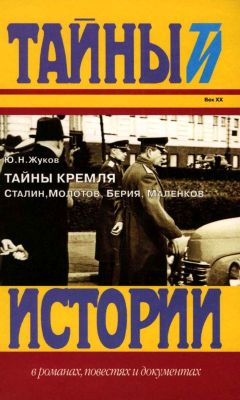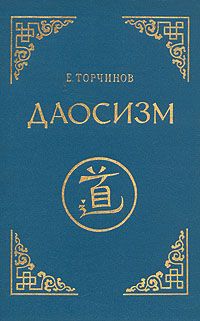Kim ManChoong - The Cloud Dream of the Nine
Moonlight's prophecy was speedily fulfilled, and when Yang next visited her he had become a famous general and was on the road with “all the insignia of power—flags, drums and battle axes.” Their meeting was full of joy. “Yang, with pent-up heart longings and desire to see her face to face, caught her lovely expression, which took fresh grip of him. . . . Moonlight saw him dismount and bowed low. She accompanied him into the guest room, where in her joy of soul she took hold of the border of his robes. Her tears flowed faster than her words. She congratulated Yang on his engagement to the daughter of Justice Cheung, and told him how she had had at one time to cut off her hair to escape dishonour so that she might remain true to him. “They renewed their former happy acquaintance and he tarried for several days.”
Then follows an account of Moonlight's ruse to let Wildgoose become acquainted with Master Yang without his knowledge: “That night he talked over the past with Moonlight and said how they had indeed been destined for each other. They drank and were happy till the hours grew late. Then they put out the lights and slept. When the east began to lighten he awoke and saw Moonlight dressing her hair before the mirror. He looked at her with tenderest interest and then gave a start and looked again. The delicate eyebrows, the bright eyes, the wavy hair like a cloud over the temples, the rosy-tinted cheeks, the lithe graceful form, the white complexion—all were Moonlight's, and yet it was not she.”
Wildgoose made an eloquent plea for her presence. “How could I ever have ventured to do such a thing,” she said, “were it not that I have had born in me one great indomitable longing that has possessed me all my life—to attach myself to some renowned hero or superior lord. When the King of Yon learned my name and bought me for a heaped-up bag of jewels, he fed me on the daintiest fare and dressed me in rarest silk. Yet I had no delight in it but was in distress. When the King of Yon invited you to a feast I spied on you through the screen chinks and you were the one man that my heart bounded forth to follow. The palace has nine gateways of approach, but when you had been gone ten days I secretly took one of the King's fast horses and sped forth on my way. What I did last night was at the request of Moonlight. If you will permit me to find shelter under your wide-spreading tree, where I may build my little nest, Moonlight and I will live together, and after the Master is married to some noble lady, she and I will come and speak our good wishes and congratulations.”
Yang replied with generous words, and Moonlight also appeared and said: “Now that Wildgoose has waited on my lord as well as I, I thank thee on her behalf.” And they bowed repeatedly.
The most startling of Yang's love stories is his meeting with Swallow. It happened during a military campaign. The General was seated in his tent with a lighted candle before him reading despatches during the third watch of the night. Suddenly a cold wind extinguished the light of the candle, an eerie chill filled the tent, and a maiden stepped in upon him from the upper air holding a glittering double-edged sword in her hand. The General, “guessing her to be an assassin,” did not quail but stood his ground sternly and asked who she was. “I am under the command of the King of Tibet,” she said, “to have thy head.” The General laughed. “The Superior Man,” he replied, “ never fears to die. Take my head, if you please, and go.” At this the maiden disclosed her real intent. She had entered the camp at the bidding of the King of Tibet for the ostensible purpose of carrying back to that monarch the head of the great General, but her real object was to reveal her love for Yang and to save his life and help him to victory. “Her face was bright like rose petals with dew on them. She wore phoenix-tail shoes, and her tones were like the oriole.” The Teacher who had helped her to become a “master of the sword drill” and had taught her how to “ride the winds, follow the lightnings, and in an instant travel 3,000 li,” had also revealed to Swallow that Yang was her destined master and her true affinity.
Yang was naturally as delighted as he had been surprised, so “they plighted their troth, the glitter of swords and spears serving for candle light” and the “sound of cymbals for the festal harp.” After many days of pleasure Swallow said to Yang, “A military camp is no place for women; I fear that I shall hinder the movements of the troops,so I must go.” In vain Yang tried to persuade her that she was not as other women. The Swallow gave him a parting talisman and some sound advice and then “sprang into the air and was gone.”
As astounding also was General Yang's love affair with White-cap, the daughter of the Dragon King. This lady helped Yang in his military career by means of magic. Her love-making took place in a grotto under a mountain lake, where she was in hiding in the form of a mermaid. “I am Pak Neung-pa,” said White-cap, giving her full name. “When I was born my father was having an audience with God Almighty.”
She then explained how she had been dowered from birth with superhuman abilities and had incurred the hatred of a neighbouring King because she refused to listen to the wooing of his undesirable son. She had sought Yang because her affinity with him had been divinely disclosed. White-cap went on: “I have already made promise to you of this humble body, but there are three reasons why I ought not to be mated to your Excellency. First, I have not told my parents; second, I can accompany you only after changing this mermaid form of mine. I still have scales and fishy odours with fins that would defile my lord's presence. Third, there are spies of my unwelcome royal suitor all around us. Our meeting will arouse their anger and cause disaster.” The General waived all the objections. “Your ladyship was a fairy in a former life,” he said, “and you therefore have a spiritual nature. Between men and disembodied spirits intercourse may be carried on without wrong, then why should I have aversion to scales and fins? Why should we miss this opportunity to seal our happy contract?” So they “swore the oath of marriage and found great delight in each other.” After this encounter Yang's military victories were more glorious than ever and he returned home the greatest man of the age.
On Yang's return to the capital the highest honour had been prepared for him that can fall to the lot of an Imperial subject. A marriage had been arranged between him and the lovely Princess of the Imperial family, Princess Orchid, and he became a Prince in rank. How this marriage was arranged, and Yang's marriage with Justice Cheung's daughter, Jewel, who was raised to Imperial rank by adoption, was consummated, and how the reunion took place with Cloudlet and Chin See, the reader is told with many thrilling and humorous details.
Yang's aged mother was brought with great ceremony to the capital. Honours and gifts were showered upon her. The two Princesses bowed before her as dutiful daughters-in-law, and the six secondary wives also delighted in giving her honour. Yang's princely household was so great that palaces, halls, galleries and pagodas were requisitioned. His life with his eight wives, their children and his aged mother, was a revelation of earthly bliss and wondrous grandeur. The Emperor's reign was also a notable time of peace and prosperity. Even in old age Yang and his ladies had beauty and the power of enjoyment.
But a day came when the Master heard “faint voices calling from another world.” “Slowly his spirit withdraws from earthly delights.”
One day, while sitting in a high tower from which there was a view of Chin River stretching in silvery reaches for a hundred miles, he drew forth his green stone flute and played for his ladies a “plaintive air as though heaped-up sorrows and tears had broken forth upon them.” The two Princesses asked why he should suggest such sorrow in the midst of their exceeding happiness with “golden flowers dropping petals” at his feet, and “our loving hearts around you?” The Master pointed to distant ruins of palaces that had held famous men and their women folk. He spoke of his boyhood as a poor scholar and the wonderful triumphs of his career and their nine rare affinities. “Children who gather wood or feed their cattle on the hillside,” he said, “will sing their songs and tell our mournful story, saying, 'This is where Master Yang made merry with his wives and family. All his honours and delights, all the pretty faces of his ladies are gone for ever.'“ Hearing the Master's words the ladies were moved and knew that he “was about to meet the Enlightened One.”
Then there appeared an old man leaning upon a staff. His “eyebrows were an ell long and his eyes were like the blue waves of the sea.” He was the aged priest of Lotus Peak who had come to summon Yang. He conversed with Yang, who did not at first recognise him—and in a little while Yang woke to find himself in a small cell in a monastery on a mountain side. He looked at himself and at his dress. He was again Song-jin the acolyte. His earthly power and his eight wives had vanished as a dream that is gone. The Teacher came to him and said: “You have soared on the wings of worldly delight and have seen and known for yourself. You say that you have dreamed a dream of mortal life upon the wheel and now you think the world and the dream itself to be different. But this is not so. If you think it so, this shows that you are not awakened from your sleep.” Song-jin replied: “I am a darkened soul and so cannot distinguish which is the dream and which is the actual reality. Please open to me the truth.”
Before the Teacher had time to explain, the eight fairies of the Queen of the genii appeared at the monastery gate. They said to the Teacher: “Our earthly desires have gone forth after sin and evil in the dream of mortal life, and there is none to save us but the Great Teacher who in love and mercy himself came to call us.”
The Great Teacher appointed the eight fairies their places in the Hall of the Buddha. Then he took “his cassock, his alms-dish, water-bottle and his ornamented staff, his Diamond Sutra, gave them to Song-jin, bade them all farewell and took his departure to the West.” Song-jin became chief of the disciples on that height and taught the Doctrine, and the eight fairies, as priestesses, served him as their master and drank deeply of the Doctrine.
And at last they all reached the blissful heights of Paradise.
V.—WOMAN'S VOICE IN POLYGAMY
Polygamy is the chief bulwark of the Chinese and Korean family system, and when its basic claim is accepted by a community its practicableness, if not its justice, is undoubted. The men of the Tang era had everything to gain by such a system. The women meekly accepted their place because they believed that they were expiating the faults of a former existence by enduring the shame of being women. But in this tale, which honours the mating of one man and eight women, we find some of the women giving voice to an inward discontent.
The Princess Orchid, Jewel and Cloudlet, we read, sat “like the three feet of the incense burner,” so perfectly were they matched in beauty, grace and learning. “They laughed sweetly and talked in soft and tender accents. Perfect agreement possessed them in thought and mind and soul, and they loved each other with an infinite delight. They talked of all the great masters of the past and of the renowned ladies of ages gone by till the shadows of the night began to cast their lines athwart the silken window.”
There is nothing more convincing in the whole story than the impression that the writer unconsciously gives of the strenuous intellectual and artistic pastimes of these women of the Tang era. Their physical charms are dwelt on poetically and fancifully but never sensuously; their accomplishments are so varied that they not only embroider and paint, study music, dancing and sword drill, and write poems so that their “pens flew like swift wind or a sudden squall of rain,” but in classical allusion and metaphor they hold their own in conversation with literary men.
The Princess said to Jewel: “A boy is free to go to all points of the land and sea, he can pick and choose good friends, can learn from another and can correct his faults, while a girl meets no one but the servants of her own household. How can she expect to grow in goodness or to find in any such place answers to the questions of the soul? I was mourning over the fact that I was a girl shut up in prison when I heard that your knowledge was equal to that of Pang-So and your virtue and loveliness like that of the ancients. Though you do not pass outside your own gateway, yet your name is known abroad even to the Imperial Palace. You have not refused me admittance and now I have attained my heart's dearest desire.”
Jewel made answer: “Your kind words will live for ever in my humble heart. Locked up as I am in these inner quarters, my footsteps are hindered from freedom and my sight and hearing are limited to this small enclosure. I have never seen the waters of the wide sea nor the long stretches of the hills. So limited in experience and knowledge am I that your praise of me is too great altogether.”
And Jewel's real inner heart is expressed in her prayer to Buddha when she believed that she would have to give up Yang, who was under royal command to wed the Imperial Princess. She prayed:
"Thy disciple, Kyong-pai, by means of her servant, Cloudlet, who has bathed and made the required offerings, bows low, worships and makes her petition.
“Thy disciple has many sins to answer for, sins of a former existence as yet unexpiated. These account for her birth into this life as a desolate girl who never knew the joy of sisterhood. Condescend, ye Holy Ones, to accept this prayer of mine, extend to me pity and let my parents live long like the endless measure of the sky. Grant that I be free from sickness and trouble so that I may be able to dress neatly and to please them, and thus play out my little part in life on their behalf. When their appointed span is over I will break with all the bonds of earth, submit my actions to the requirements of the law and give my heart to the reading of the sacred sutras, keep myself pure, worship the Holy One and make payment for all the unmerited blessings that have come to me.
“My servant, Cloudlet, who is my chosen companion, brings this to thee. Though in name we two are maid and mistress we are in reality friend and friend. She in obedience to my orders became the secondary wife of General Yang, but now that matters have fallen otherwise and there is no longer hope for the happy affinity that was ours, she too has bade a long farewell to him and has come back to me so that we may be one in sorrow as well as in blessing, in death as well as in life. I earnestly pray that the divine Buddha will condescend to read our two hearts and grant that for all generations and transmigrations to come we may escape the lot of being born women, that thou wilt put away all our sins of a former existence, give blessing for the future so that we may transmigrate to some happy place to share endless bliss for ever.”
Cloudlet's good-bye to Master Yang proves that Jewel's belief in her devotion and loyalty was well founded. Yang had tried to persuade Cloudlet that she might remain with him. He said: “Your devotion to your mistress is most commendable. Still your lady's person and yours are different. While she goes north, south, east or west as she chooses, your following her and at the same time attempting to render service to another, would break all the laws that govern a woman's existence.”




